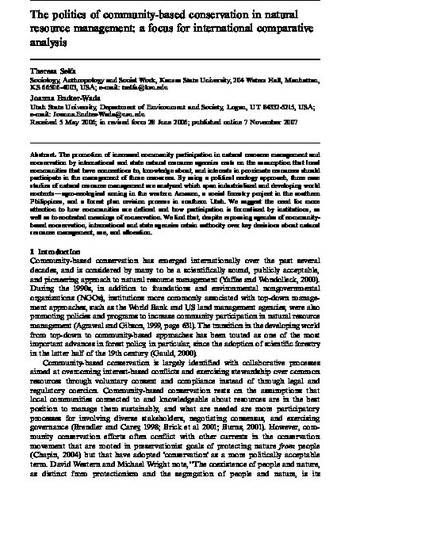
Article
Politics of Community-Based Conservation in Natural Resource Management: A Focus for International Comparative Analysis
Environment and Planning A : Economy and Space
(2008)
Abstract
The promotion of increased community participation in natural resource management and conservation by international and state natural resource agencies rests on the assumption that local communities that have connections to, knowledge about, and interests in proximate resources should participate in the management of those resources. By using a political ecology approach, three case studies of natural resource management are analyzed which span industrialized and developing world contexts—agro-ecological zoning in the western Amazon, a social forestry project in the southern Philippines, and a forest plan revision process in southern Utah. We suggest the need for more attention to how communities are defined and how participation is formalized by institutions, as well as to contested meanings of conservation. We find that, despite espousing agendas of community-based conservation, international and state agencies retain authority over key decisions about natural resource management, use, and allocation.
Disciplines
Publication Date
2008
DOI
https://doi.org/10.1068%2Fa39160
Citation Information
Theresa Selfa and Joanna Endter-Wada. "Politics of Community-Based Conservation in Natural Resource Management: A Focus for International Comparative Analysis" Environment and Planning A : Economy and Space Vol. 40 Iss. 4 (2008) p. 948 - 965 Available at: http://works.bepress.com/joanna_endterwada/116/
